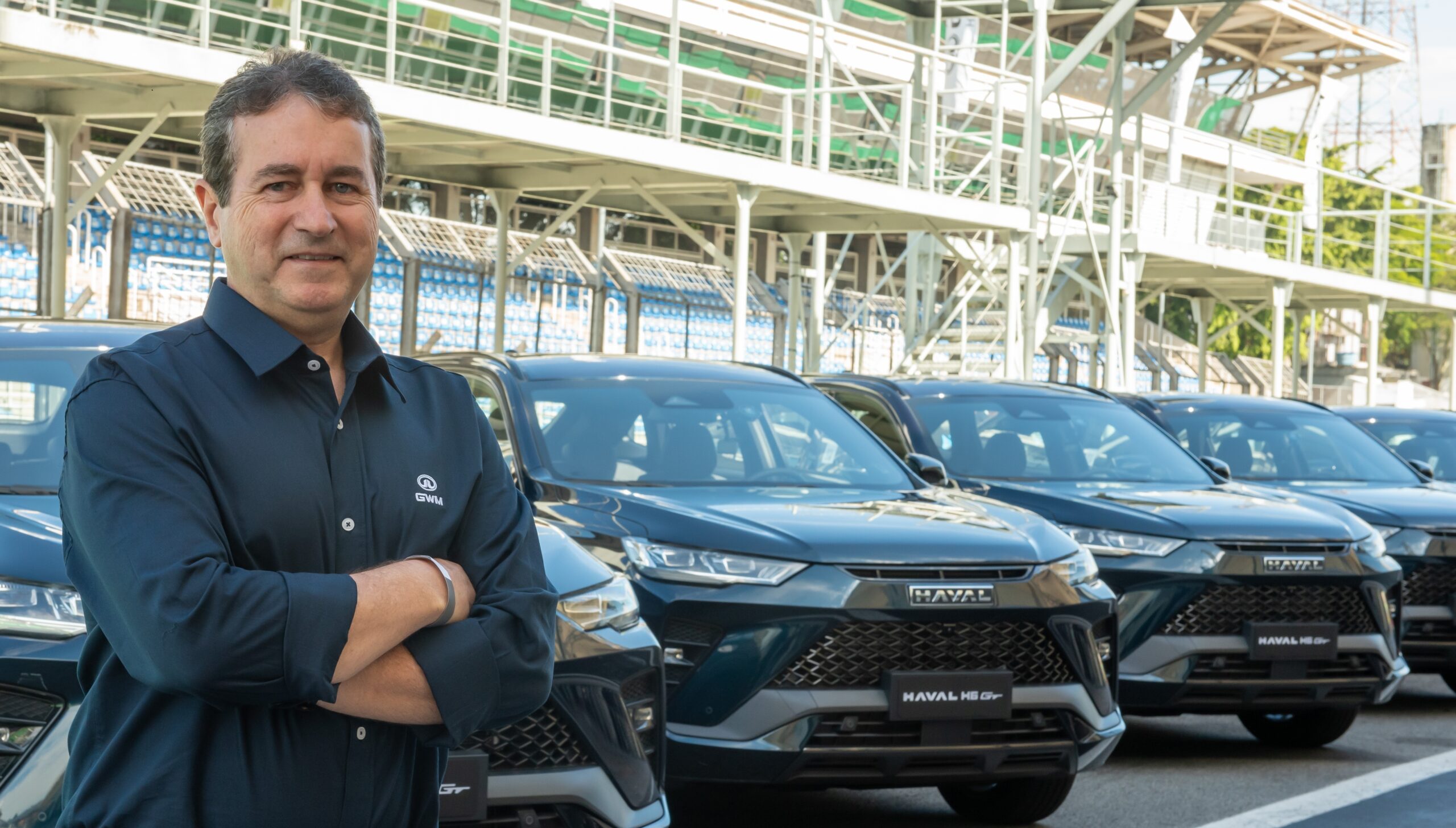Ricardo Bastos, GWM Brasil's Institutional Affairs director, says the system is more transparent and favors all those involved in the car business


By Alzira Rodrigues | 5/31/23 | Translated by Jorge Meditsch
Adopting an unprecedented business model in Brazil, with 100% of the business through direct sales, GWM – Great Wall Motor – signed a deal with its dealers’ association before starting to offer the Haval H6 SUV, which arrived in the country last April.
With this initiative, the Chinese brand is provoking a revolution in the Brazilian market, a step ahead of what is now being presented by individual manufacturers and Anfavea as the best way to offer affordable products related to the government’s popular car project.
According to the law, brand-new car sales can be done directly by manufacturers in specific cases, such as for juridic persons, taxi drivers, and disabled persons. The brand convention is the only way to escape this limitation, and the Chinese manufacturer did this even before starting commercial operations in the country. In the past, there was an agreement of this kind in 2000, but for a single model – the Chevrolet Celta – and for a limited time.
In an interview with AutoIndústria, Ricardo Bastos, GWM Brasil’s Institutional Affairs director, talked about the uncountable advantages of the direct sales model, not only for the manufacturer, but also for the dealers and consumers, who pay less for the desired products.
Among them is that the dealership doesn’t need to maintain and pay for an inventory. The invoice is issued by the plant directly to the customer with a price that already includes the dealer’s commission.
“It is a more transparent system, as taxes are based on the public price established by the manufacturer, which will be paid by the consumer.
The GWM dealer’s association is already associated with Fenabrave. The ASSOGW – Associação Brasileira dos Concessionários Great Wall – is already on the list of associates on the website of the federation that represents the vehicle distribution sector in Brazil.
Another difference mentioned by Bastos is that there is no need for a workshop in every showroom. The groups working with the brand will have remote workshops for small repairs and a take-and-bring system for more complex problems, taking the vehicle wherever the customer is.
From 222 interested groups, 28 were chosen
GWM has already inaugurated 44 sales points in the country – 32 in shopping malls. The goal is to have 52 by the end of the year and achieve about 115 until May 1 next year, when production will start at the plant in Iracemápolis, SP, which GWM bought from Mercedes-Benz 2 years and ten months ago.
“We have showrooms as the other brands. The difference is that the manufacturer owns the products exposed and offered for drive tests, not the dealer, which will receive a commission when the product is sold. According to the already signed brand convention agreement, the resale margin will be fixed independently of the store’s sales and individual model volume.
In the business model used by the other brands, the direct sales margin is about 6%, and in sales for physical customers, it reaches 11%. The indexes aren’t fixed like in GWM, which established it in the brand convention. The consumer will be able to make the purchase either through the manufacturer site, Mercado Livre or in a dealership. When the transaction includes exchanging a used vehicle, it should happen in a dealership.
“With this strategy adopted before opening the sales in the country, we got a motivated dealer net. Part of the dealer’s commission is connected to post-sales performance and client satisfaction. It is all in the contract, defined and signed. There is total safety in commercialization rules”, explained Bastos.
Among the pioneering decisions adopted by GWM is the strategy to define the groups that will work with the brand at the beginning of operation in Brazil. When it announced the creation of the net, 222 groups manifested interest in working with the brand. One-hundred twenty were selected for in-person interviews in São Paulo, and, in the end, 28 were chosen.
Each one will be responsible for a region – there will be no competition between groups in the same space. Some cities, such as São Paulo and some states, include more than one region and, thus, had more than one group chosen.
That’s a model very different from the one implanted in the Brazilian market since the first brands arrived in the country, and that keeps restraints from the past, such as the difficulty of selling directly to the common consumer.
The question now is what will be decided about the ‘popular car’, whose debate brought to light the matter of direct sales, contested by Fenabrave, and that may even motivate the issue of a Provisional Measure by the Brazilian government, according to the MDIC, the Ministry of Development, Industry, Commerce and Services.
Assim como a Anfavea, o presidente da entidade, Marcelo Godoy, também não apoia pleito da…
Empresa tem acordo de participação e produção de carros na fábrica paranaense da Renault
Crossover elétrico tem duas versões de motor e autonomia de até 600 km
Há um ano no programa AutoEsporte, antes era chefe de Imprensa/Produto na Stellantis
Negócio envolve um centro de P&D e uma unidade de produção; empresa atuará de forma…
Da produção limitada a 660 unidades, dez desembarcarão por aqui